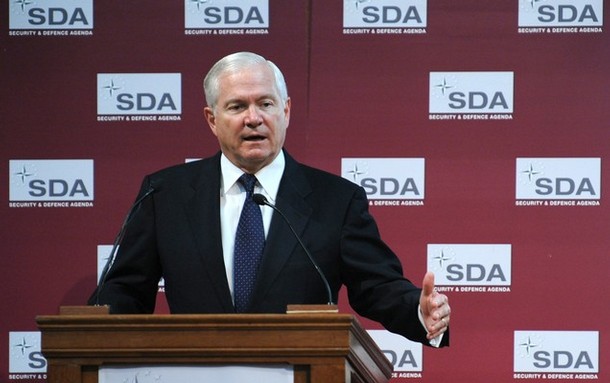
From Alexis Crow, the New York Times: For the most part, American statesmen have tended to see NATO as a collective defense community built on Western values, ideally harboring the ability to carry out operations across the globe to secure these values — in essence, a "global NATO. . . ."
But Europeans, who pride themselves on being pacific and post-modern, would like to see NATO as a collective security community, one that "comes home" from ambitious nation-building projects abroad, and addresses softer, non-traditional security challenges like Arctic security or cyberdefense. . . .
So, the debate within NATO is really a crisis of ambition: Mr. Gates mourns the death of an organization that cannot match capabilities with global ambition, while other European allies point to the alliance’s sustained campaign in Libya as evidence of its continued vitality.
Looking beyond Mr. Gates’s tenure, and into an era in which Washington’s attention is increasingly turned toward the Pacific, is the U.S. likely to pull back from NATO? Insofar as it views the alliance as a conduit for global ambitions, then such a drawback is inevitable. However, if NATO becomes a collective security community, which many European leaders would like to see, then the real question for American leaders is whether such a "post-modern" NATO is of strategic value to the United States; or indeed, a sound investment.
Alexis Crow is a research fellow in the international security program at Chatham House in London. (photo: Getty)
Image: getty%206%2014%2011%20Robert%20Gates.jpg
